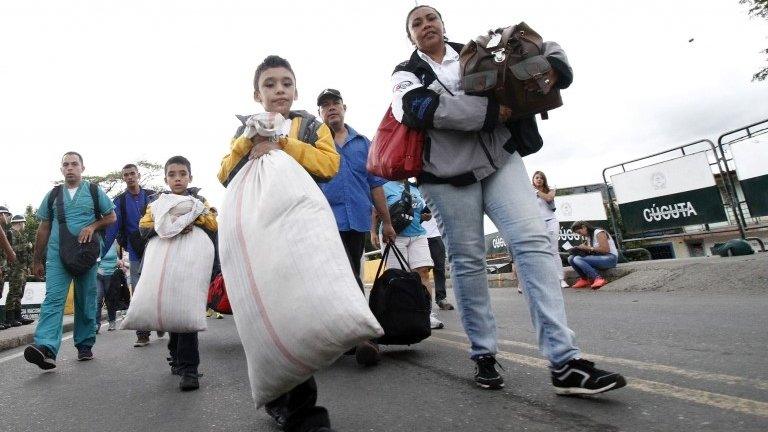Venezuela: The most expensive Nutella in the world?
- Published
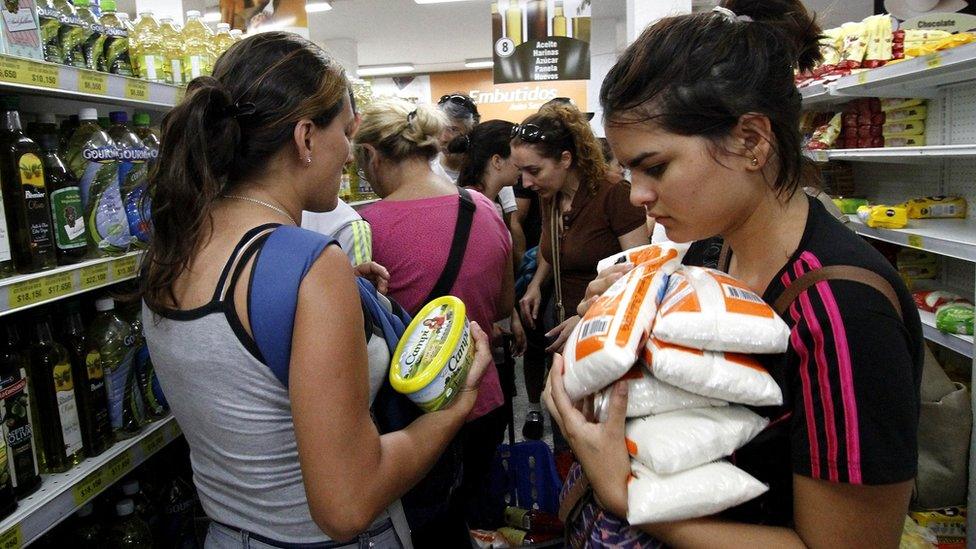
Venezuela's contrast is between pricey luxury shops and long queues at normal supermarkets
An economic crisis in Venezuela - oil rich but suffering from its low world price - has led to people queuing around the block for basic items. When the BBC's Daniel Garcia Marco arrived, he went straight to supermarkets to see for himself.
I spent my first days in Venezuela taking photographs of food. I needed to reassure family and friends. They were surprised - as was I - to see shelves brimming with vegetables, cereal and bread.
There is food in Caracas, the capital. But as inflation pushes prices higher and higher, the food is inaccessible for the majority of people.
How long does it take to buy basic goods in Venezuela?
Venezuelans cross re-opened border to shop in Colombia
What has gone wrong in Venezuela?
The fall of the price of oil, which is the main source of income for the Venezuelan economy, has crushed the country's ability to import products.
The International Monetary Fund (IMF) is predicting that inflation will hit 700% by the end of the year. The government last published figures for inflation in December 2015, putting it at 180%. It regards the shortages as being caused by an "economic war" waged by the private sector and foreign countries.
Luxury shops have prices much higher than those in Europe or the US.
One delicatessen supermarket stocks only imported goods from Italy, Spain and the US. A jar of the Italian chocolate spread Nutella can reach 15,000 bolivares - $15 (£11) if you sell it on the black market. A 750g jar in a UK supermarket costs about £3.50.
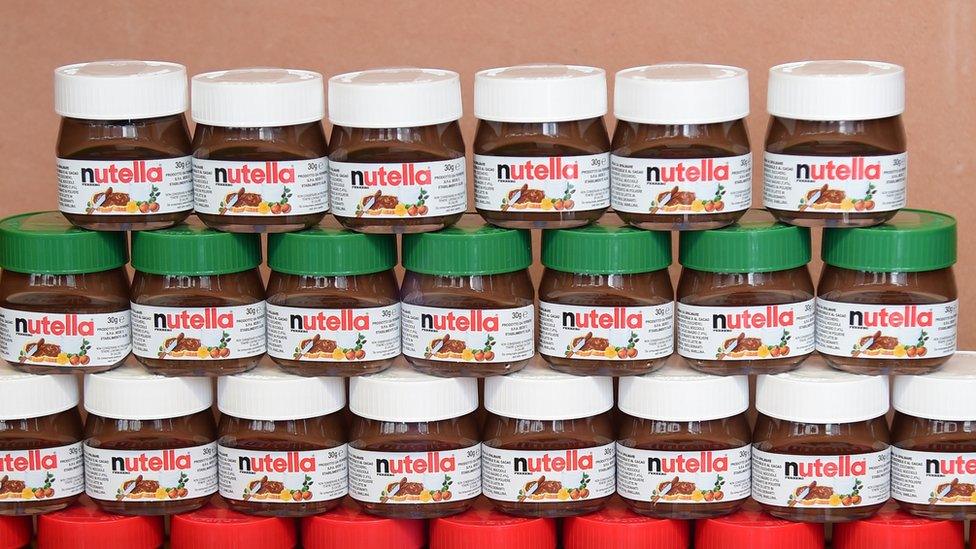
Would you spend half your monthly wage on a jar of Nutella?
More saliently, it is half the Venezuelan monthly minimum wage.
This is not the fault of the chocolate spread manufacturers but a symptom of a seriously struggling economy.
If you are unable to pay, you will have to queue for hours to get basic goods.
"I haven't seen sugar in a while," says Luz. Fridays are her day for shopping - this is decided by the number on her ID card, in one of the ways the government has tried to deal with the food shortages.
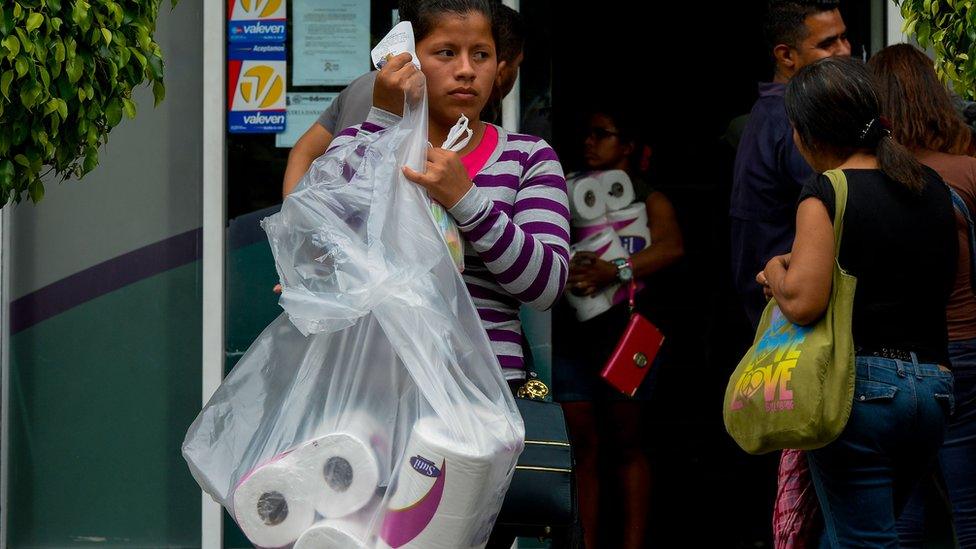
Toilet paper is one of the most difficult things to get hold of in Venezuela
Luz lives in Petare, one of the poorest areas of Caracas. Every Friday she goes to a supermarket in Santa Fe, a middle-class area.
She gets up at 03:00 so she can queue - but that does not guarantee anything. The supermarket may say the delivery did not arrive, or things might run out by the time she gets to the front of the queue, or there might only be soap when she wants sugar.
The Central Venezuelan Bank (BCV) used to publish an official scarcity index. In April 2014 it was at 25.3%. That was the last time the figure was made public.
There are hundreds of jars of tomato sauce, but no pasta. You will find plenty of gel to fix your hair with "cement effect", but there is no trace of shampoo, necessary to return your hair to its less rigid state.
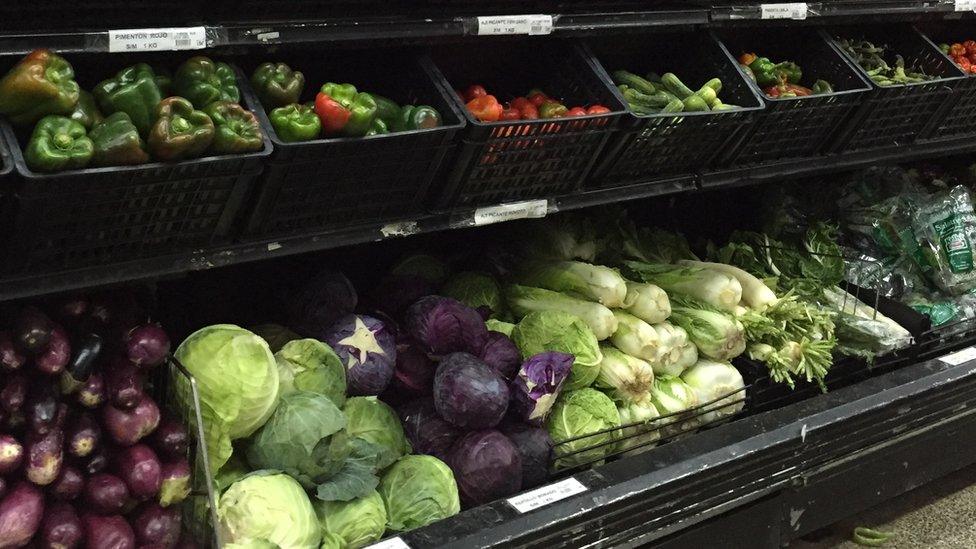
There is plenty of fresh produce but inflation has made it expensive
It is impossible to get cow's milk. Almond milk is a healthy but expensive alternative.
The government is trying to fight against people who queue and then sell goods at massive mark-ups. It has regulated prices at some supermarkets and prioritised poor people at others.
But while the crisis continues, prices and politics will be the two big conversation topics in Caracas.
- Published12 August 2021
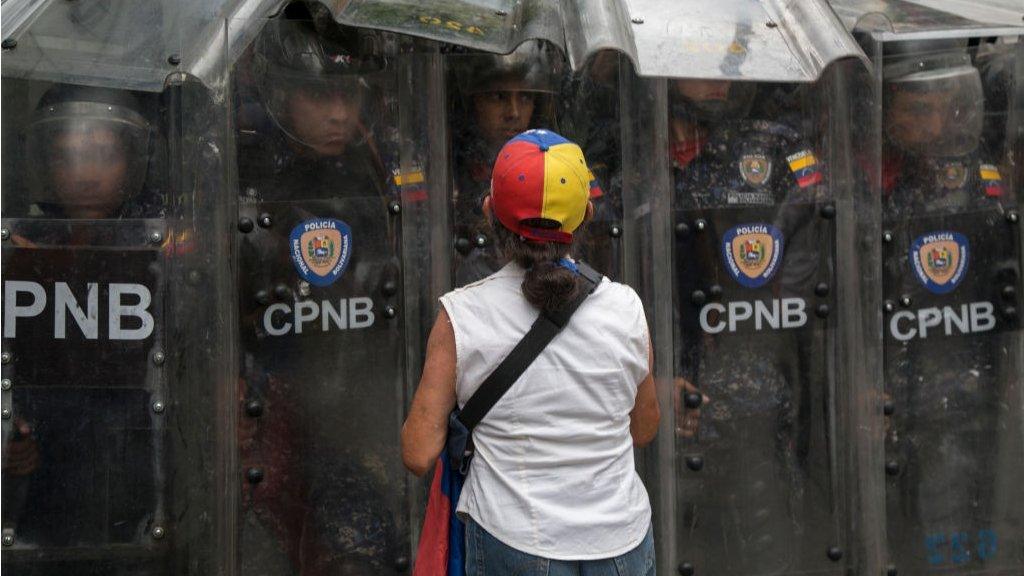
- Published23 March 2015
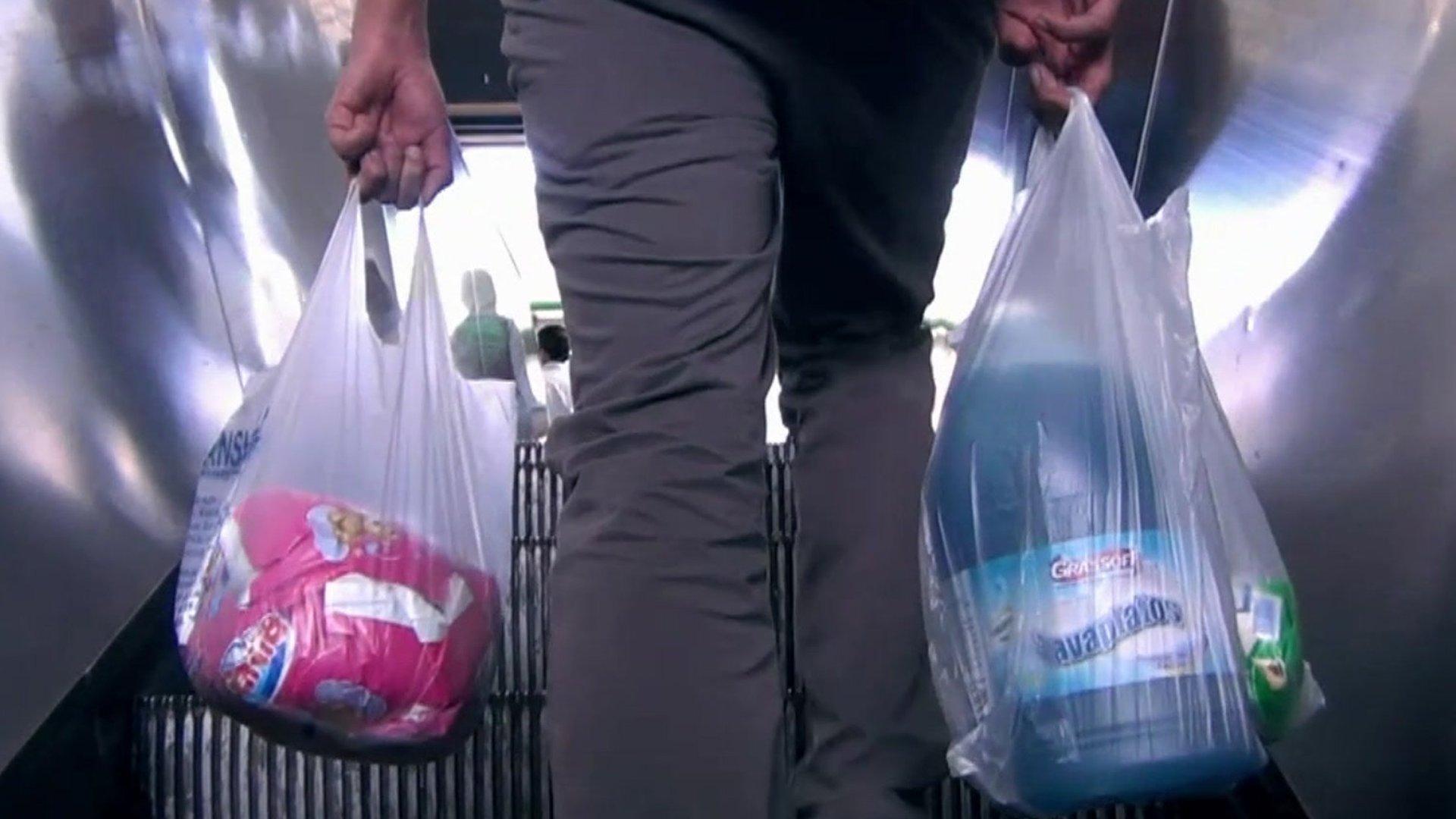
- Published13 August 2016
